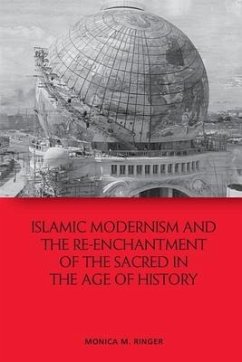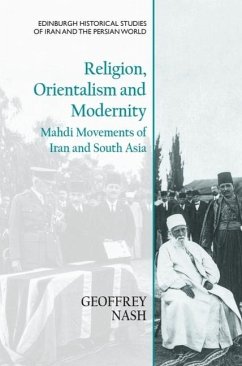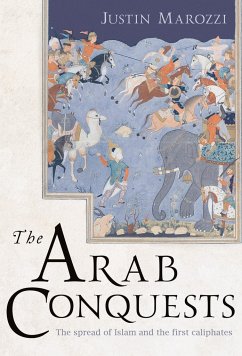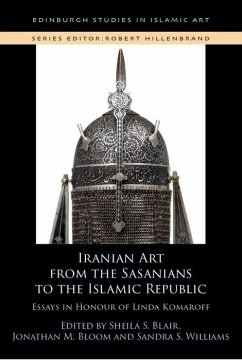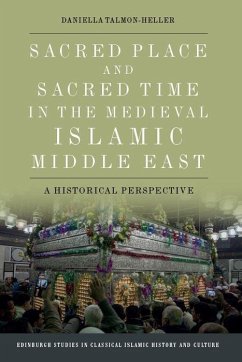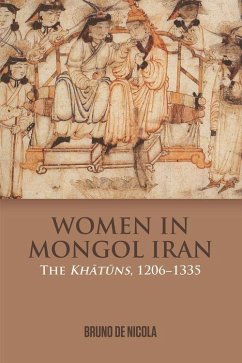
Islamic Modernism and the Re-Enchantment of the Sacred in the Age of History
Versandkostenfrei!
Versandfertig in über 4 Wochen
122,99 €
inkl. MwSt.

PAYBACK Punkte
61 °P sammeln!
'Islamic Modernism is an exciting study of the intellectual work going into the reform of Islam in the nineteenth century, analytically deep and wide-ranging. But it is also much more, forcing us to rethink the transformation of religion in general, and as a global process. Stimulating!' Sebastian Conrad, Free University of Berlin 'The principal insight of this important study derives from a fresh and cogent reframing of historicism. Written with admirable clarity, this work is penetrating in its analysis and far reaching in its implications that go well beyond the Islamic domain. A major cont...
'Islamic Modernism is an exciting study of the intellectual work going into the reform of Islam in the nineteenth century, analytically deep and wide-ranging. But it is also much more, forcing us to rethink the transformation of religion in general, and as a global process. Stimulating!' Sebastian Conrad, Free University of Berlin 'The principal insight of this important study derives from a fresh and cogent reframing of historicism. Written with admirable clarity, this work is penetrating in its analysis and far reaching in its implications that go well beyond the Islamic domain. A major contribution to the contemporary debates about religion, secularism, and modernity.' Tomoko Masuzawa, University of Michigan Asks why Islamic Modernism took the shape it did and why it emerged when it did This book studies the complex relationship of religion to modernity. Monica M. Ringer argues that modernity should be understood as the consequence, not the cause, of the new intellectual landscape of the 19th century. Using the lens of Islamic Modernism, she uncovers the underlying epistemology and methodology of historicism that penetrated the Middle East and South Asia in this period, both forcing and enabling a recalibration of the definition, nature, function and place of religion. And she shows that Muslim Modernists, like their counterparts in other religious traditions, engaged in a sophisticated project of theological reform designed to marry their twin commitments to religion and to modernity - they were in conversation not only with European scholarship and Catholic Modernism but, more importantly, with their own complex Islamic traditions. Key Features . Provides a new framework for conceptualising the relationship between Western and non-Western modernities . Explores Islamic Modernist rewriting of Islamic history as it reconfigured the nature and function of religion as a category of analysis . Shows that Islamic Modernists adopted intellectual frameworks that first emerged in Europe, then deployed them to argue for the superiority of Islam . Looks at how Islamic Modernists claimed Islam as the motor of modernity and the solution to contemporary 'backwardness' . Includes case studies of 4 Islamic Modernists: Jamal al-Din al-Afghani (Iran), Imam Bayezidof (Russia), Namik Kemal (Ottoman Empire) and Syed Ameer Ali (India) Monica M. Ringer is Professor of Middle Eastern History at Amherst College. She is the author of numerous articles, a co-translation of an Ottoman novel, a co-edited book on the Ottoman novel and two monographs, Education, Religion and the Discourse of Cultural Reform in Qajar Iran (2001) and Pious Citizens, Reforming Zoroastrianism in India and Iran (2011). Cover image: The gigantic globe, Paris Exposition, 1900, Keystone View Company. Image courtesy of The Library of Congress Cover design: [EUP logo] edinburghuniversitypress.com ISBN 978-1-4744-7873-1 Barcode



